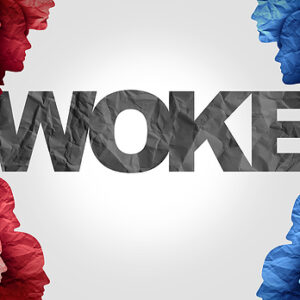Every day, corporate America has launched a new initiative that reasonably could be described as “woke.” At first glance, this wokeness doesn’t seem so bad. Doesn’t America have a history of racism, discrimination and injustice? Don’t these persist? Shouldn’t we seek to remedy them?
Yes, of course.
Wokeness, however, especially among corporations, isn’t the answer. It’s fundamentally illiberal, undermining centuries-old principles such as the rule of law, equality under the law, freedom of speech and due process of law. It harms the very communities it purports to help.
Take the example of Bank of America, which has just announced its Community Affordable Loan Solution. This new program offers loans to certain first-time homebuyers without requiring a down payment, closing costs on mortgages, a minimum credit score, or mortgage insurance in areas with high African-American and Hispanic populations.
We’ve seen a version of this before. Remember the Community Reinvestment Act’s role in proximately causing the global financial crisis of 2008? That experience taught us that relaxed lending standards, which qualified people for home ownership who otherwise would not have qualified, victimized ethnic minority communities and those with lower incomes. Individuals and families were not helped when they bought homes they couldn’t afford, and their financial woes, aggregated across society, contributed to the economic collapse.
Did ethnic minorities and the marginalized benefit from a massive economic downturn? Of course not. They suffered more than anyone else.
Who stands to gain from the Community Affordable Loan Solution if not the groups it allegedly assists? Well, Bank of America, which will have used minority communities for branding and marketing — for its own advantage, in other words — while making them worse off.
Consider, as well, the environmental, social and governance (ESG) criteria that financial firms are pushing on corporations at the expense of ordinary, hardworking Americans. These are unethical. Why? Because they mismanage other people’s money.
Asset managers who invest, for example, the pension money of state government workers will often screen companies based on ESG compliance and divert investments to underperforming, ESG-friendly funds rather than to funds that yield the most returns for shareholders or the beneficiaries of the pensions. These beneficiaries may not be aware that their money supports political positions with which they disagree.
The corporate trend toward “wokeism” must be reversed.
Florida’s “Stop Woke Act” is an example of how not to counter wokeism. Designed to neutralize woke indoctrination, this legislation burdens speech by banning mandatory workplace training regarding sex or race that could cause “anguish” or “guilt.”
It’s one thing for the government to limit its own expression — say, by removing critical race theory from public grade-school curricula or restricting state-agency implicit bias instruction — but the Stop Woke Act binds private employers and voluntary membership associations. The illiberalism and censorship codified by the Stop Woke Act mirror the illiberalism and censorship championed by woke ideologues.
One way to counteract corporate wokeism is for state legislators to require state fund managers to act solely in the interest of shareholders. States should refuse to work with asset management companies that prioritize ideological investments in, say, ESG over sound investments that maximize financial returns.
There are also moral reasons to oppose wokeism, which institutionalizes racism in the name of antiracism.
Wokeism teaches minorities that they’re agentless victims of White hegemonic oppression rather than creative sources of innovation, entrepreneurship, freedom and inspiration. A different and more positive message would empower minorities to achieve their full potential, to understand that race is only a part of their identity and not the sum of their humanity, and that hard work and sound business lead to accomplishment, happiness and flourishing.
The United States is polarized and fractured. Treating people as mere avatars of their race, of those surface-level qualities and characteristics they entered the world with and never chose, will only damage and offend. If it’s true that corporate America remains complicit in systematically racist structures that disadvantage ethnic minorities, then wokeness is partially to blame. It enriches the already rich and, inadvertently, burdens those who struggle the most. It’s bad. And things won’t improve until people “awaken” to its harmful consequences.

